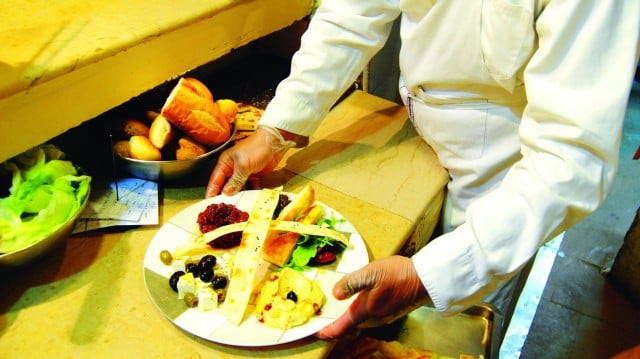More food items become unaffordable
Flour, rice, meat, milk, vegetable prices remain on rise

Despite government's measures to check price hike, rising inflation during the past two years has left a number of commodities out of the reach of a large section of the population.
A comparison of the figures shows that food prices have risen at varying rates during the period. Flour, rice, meat, milk, pulses, fruits and vegetables, all have become expensive.
Since November 2018, grocery prices have increased by up to 80 per cent.
The increasing prices along with rising unemployment and poverty after the novel coronavirus pandemic hit the national economy have left a number of people unable to afford many food items.
In view of the situation, the government launched several programmes for economic recovery, but the common people could not benefit due to the rising inflation. According to the official data, in November 2018, a 20kg bag of flour was sold for Rs784, while now its official price is Rs866 after an increase of Rs82. However, the flour bags are being sold in the markets for as much as Rs900.
In two years, the price of beef has gone up from Rs446 to Rs558 per kg after an increase of Rs112 and mutton from Rs920 to Rs1,145 per kg after an increase of Rs225. The official price of unpacked milk increased from Rs102 per litre to Rs119. But open milk is being sold in the market for up to Rs130 per litre. The price of broken rice has gone up from Rs96 to Rs106 per kg. The price of a dozen eggs has gone up from Rs121 to Rs161 with an increase of Rs40.
The price of a five-litre tin of coking oil has increased from Rs1,010 to Rs1,265 with an increase of Rs245 and 2.5kg can of ghee from Rs486 to Rs635 after an increase of Rs149.
Mustard oil price increased from Rs245 to Rs301. The price of sugar was Rs60 per kg in November 2018, which has risen by Rs43 to Rs103. However, sugar in fine packing is being sold in the markets for Rs120 per kg.
The price of red chillies has gone up by Rs228 per kg from Rs397 to Rs625 per kg. The price of can of tea leaves went up from Rs217 to Rs230.
Like several other commodities, pulses have gone out of the reach of the poor after their prices skyrocketed by Rs37 to Rs122 per kg. Masur price increased by Rs38 per kg from Rs131 to Rs169, mash from Rs154 to Rs260 per kg, channa from Rs134 to Rs171 per kg and mung pulse by Rs122 from Rs131 to Rs253 per kg.
The price of potato has gone up by an average of Rs37 per kg from Rs48 to Rs85 per kg and onion from Rs44 to Rs 87.
Tomato became expensive by Rs105 per kg with its price increasing from Rs54 per kg to Rs159 per kg. The price of garlic also increased by Rs164 per kg to Rs254.
Commenting on the situation, an economist, Dr Qais Aslam, said the federal and provincial governments did not have an effective system to control prices. It is not possible to reduce inflation with the outdated system. He said the country's economy was under pressure and high tax and interest rates along with increase in inflation had made the priced unbearable. At present, the purchasing power of the middle class is very low, as was the case with the lower middle class earlier.
A citizen, Muhammad Ramzan, told The Express Tribune that life was already unbearable due to electricity and gas bills along with other expenses, and now people could not buy flour, lentils and vegetables.
A customer in a market, Rizwan Khan, said meat had already become unaffordable for the people and now they couldn't even buy vegetables and pulses. He said that the government as well as opposition should focus on solving the problem of food prices.
Published in The Express Tribune, November 20th, 2020.



















COMMENTS
Comments are moderated and generally will be posted if they are on-topic and not abusive.
For more information, please see our Comments FAQ